Mark Anthony Neal's Blog, page 221
May 12, 2021
Kaepernick Publishing to Release 'Abolition for the People: The Movement for a Future without Policing & Prisons' In October
KAEPERNICK PUBLISHING’S FIRST BOOK ARGUES FOR A WORLD BEYOND POLICING & PRISONS
NEW YORK, N.Y. – May 11, 2021 – Kaepernick Publishing is proud to announce that it will release its first title, Abolition for the People: The Movement for a Future without Policing & Prisons, on October 12, 2021. Abolition for the People will be available in print, e-book, and audio formats.
Initially published in partnership with Medium as a digital collection in October 2020, Abolition for the People – the book – includes a number of new and expanded essays, a reader’s guide, a new introduction, powerful in-text data visualizations, and cover art designed by the legendary Emory Douglas, former Minister of Culture for the Black Panther Party.
Edited by activist and Super Bowl quarterback Colin Kaepernick, Abolition for the People is a manifesto calling for a world beyond policing and prisons. The collection includes over 30 essays representing a broad array of voices and experiences, including political prisoners, grassroots and formerly incarcerated community organizers, scholars, and family members of those killed by the anti-Black terrorism of policing and prisons.
Blending rigorous analysis with first-person narratives, Abolition for the People definitively makes the case that the only political future worth building is one without and beyond policing and prisons.
Colin Kaepernick, founder of Kaepernick Publishing and editor of the collection, stated, “We’re honored to build on decades of organizing and writing against policing and prisons and hope that this book will serve as an introduction to abolitionist concepts, histories, and practices. Readers won’t find all the answers here, but we believe they will find useful and provocative questions – questions that can open up radical possibilities for a future where our communities can thrive.”
Contributors include Angela Y. Davis, Mumia Abu-Jamal, Mariame Kaba, Robin D.G. Kelley, Bree Newsome Bass, Kiese Laymon, Kimberlé Crenshaw, Gwendolyn Woods (mother of the late Mario Woods), Derecka Purnell, Dean Spade, Dylan Rodriguez, Ruha Benjamin, and many more.
Abolition for the People is being produced in partnership with Melcher Media, with distribution by Two Rivers Distribution, an Ingram Brand.
ABOUT KAEPERNICK PUBLISHING, LLC:
Kaepernick Publishing, LLC, was founded in 2019 to elevate a new generation of writers with diverse views and voices through the creation of powerful titles that can build a better and more just world. www.KaepernickPublishing.com.
###
KAEPERNICK PUBLISHING MEDIA CONTACT:
Ben Meiselas
Director of Communications
Press@KaepernickPublishing.com
Tony Ng
Director of Marketing
Press@KaepernickPublishing.com
Book Trailer: Adrian Miller's 'Black Smoke: African Americans and the United States of Barbecue'
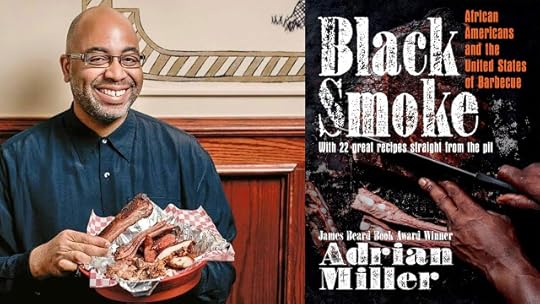
'In Black Smoke (UNCPress), Adrian Miller chronicles how Black barbecuers, pitmasters, and restauranteurs helped develop this cornerstone of American foodways and how they are coming into their own today. It's a smoke-filled story of Black perseverance, culinary innovation, and entrepreneurship. Though often pushed to the margins, African Americans have enriched a barbecue culture that has come to be embraced by all. Miller celebrates and restores the faces and stories of the men and women who have influenced this American cuisine. This beautifully illustrated chronicle also features 22 barbecue recipes collected just for this book.'
May 11, 2021
'Underground Railroad' Director Barry Jenkins Sees Film As An 'Empathy Machine'
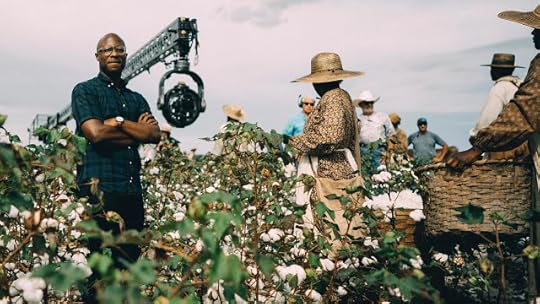
'For director Barry Jenkins, filming The Underground Railroad has been the most difficult undertaking of his career. Amazon's new series based is based on Colson Whitehead's Pulitzer Prize-winning novel about an enslaved teenage girl who escapes from a brutal Georgia plantation. The series, which was filmed in Georgia, depicts the underground railroad as a literal train that secretly transports people who have escaped enslavement and make stops in different states. Jenkins tells Fresh Air there were times when he wept on set while depicting the brutality of slavery: "It was incredibly difficult, partly because we were standing in places where there was a feeling that ... these atrocities had occurred," he says.'
Mind/Shift – Dr. Sonja Cherry-Paul: Using 'Stamped (For Kids)' to Have Age-Appropriate Discussions About Race

'When you first hold Stamped from the Beginning, it’s heavy, even as a paperback. At almost 600 pages and dense with text, a person can tell at once that author Dr. Ibram X. Kendi wasn’t pulling any punches when he set out to write “The Definitive History of Racist Ideas in America.” Stamped from the Beginning has since been remixed as Stamped: Racism, Antiracism, and You, a version of the book that was re-written for teens by best-selling author Jason Reynolds. Now, we have “Stamped (For Kids): Racism, Antiracism, and You,” an adaptation aimed at 7- to 12-year-olds.
These youth-centered books about race do the research for teachers so they don't have to spend huge amounts of time figuring out how to tackle units about American history and race in the classroom, explains author Dr. Sonja Cherry-Paul. She is an educator and researcher who wrote “Stamped (For Kids)” as an adaptation of Kendi’s original book. She's applying her 20 years of experience in middle school classrooms helping schools “shatter any kind of silence around race and racism”.'
May 10, 2021
The Quarantine Tapes 188: Tracy K Smith

“I am someone who has been eager to bring the vocabulary of justice and anti-racism into the different contexts that I inhabit, and one of them is the campus where I teach and where I feel fortunate to serve students who have a lot of wishes and needs. I think it’s been a year of working together with others to see how far we’re willing to go with this goal. But, as you may know, we’re not all on the same page, and it’s been painful to be reminded of that.”
'In episode 188 of the Quarantine Tapes, Paul Holdengräber is joined by author Tracy K. Smith. In this conversation, Paul and Tracy discuss the intensity of this moment in history, and explore the precision and power of poetry. Tracy describes the necessity for working together to develop a new vocabulary, and shares her thoughts about the essential role poetry plays in saving the soul of America.'
A Constitutional Quirk Inspired Stacey Abrams' Thriller, 'While Justice Sleeps'
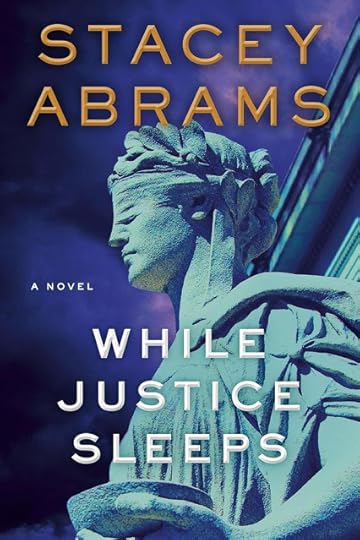
"Article III of the Constitution gives Supreme Court justices lifetime appointments — but doesn't cover what to do if they become incapacitated. For Stacey Abrams, that was the spark for an exciting story." -- Weekend Edition Sunday
Reimagining Blackness & Architecture: Ordinary Spaces can Facilitate Extraordinary Events | Emanuel Admassu

'How do we reclaim the story of a place and the people who made it? Architect Emanuel Admassu discusses his project “Immeasurability” and the story of Atlanta, Georgia as a place that has been shaped by the ordinary spaces of Black life.' -- The Museum of Modern Art
Invisible Blackness – Interview with Terrace Martin
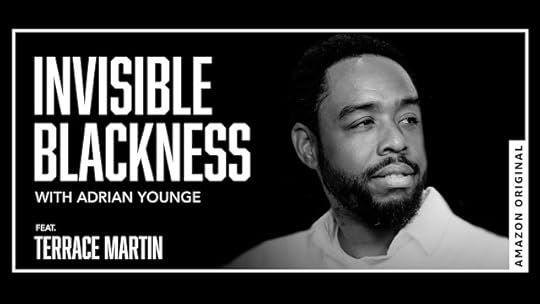
'On this episode of Invisible Blackness, host Adrian Younge is joined by Terrace Martin: a multi instrumentalist, producer and composer. He’s an essential musical voice, with a captivating story. Martin sheds light on his South Central upbringing, during the crack epidemic, and how this environment shaped his perspectives on life and culture.'
May 9, 2021
'Chauvin Is Guilty and Our Work Is Still Cut Out for Us' by Ben Jealous
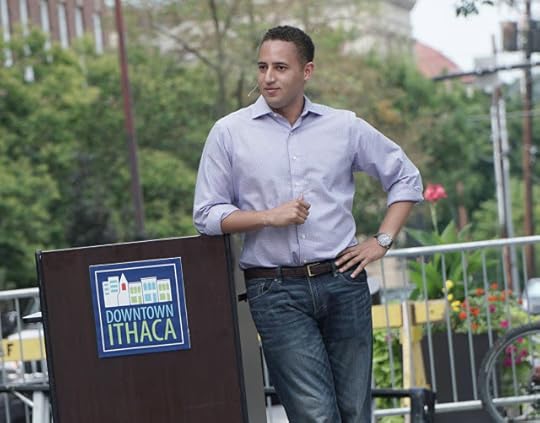
Chauvin Is Guilty and Our Work Is Still Cut Out for Us
by Ben Jealous | @BenJealous | special to NewBlackMan (in Exile)
Though time has passed since Derek Chauvin’s conviction in the murder of George Floyd. But the images from that moment are seared in our memories forever: the murderer, led away in handcuffs. The Floyd family, Philonise Floyd speaking through tears, at the microphones after the verdict. The crowds outside the courthouse erupting in cheers when the verdict was read.
Our gratitude for this measure of accountability is soul-deep. And now we ask ourselves, will things really be different this time? The answer is that they can be, if we seize this moment.
Washington has sent encouraging signs that it is serious about addressing police violence and systemic racism. Congress should pass the imperfect but important George Floyd Justice in Policing Act. The Justice Department is forging ahead with investigations of police departments in Minneapolis and Louisville, and the shooting of Anthony Brown in North Carolina.
We have work to do in our own neighborhoods, too.
Policing is a local function, controlled by city, county and state governments. These governments answer directly to us, the citizens. And there is a lot we can do to insist on change.
One of the most inspiring examples today is in Ithaca, New York, a college town led by a dynamic young Black mayor. There, Mayor Svante Myrick and the city council approved a plan to do away with their traditional police department and replace it with a new Department of Community Solutions and Public Safety, in which some personnel would carry weapons – and, importantly, some would not.
Instead, unarmed social workers would respond to the many calls in which an armed response is unnecessary and even dangerous. The new department will have a civilian supervisor. It will focus on de-escalating situations in which people are at risk, and restoring trust among the city’s communities of color, homeless residents, LGBTQ residents and residents with disabilities.
The plan came together with input from local residents as well as city and county officials. It is the kind of innovative thinking we want in communities across the nation, and the energy around the Chauvin trial helped get it over the finish line.
We all can harness that energy where we live. Our year of speaking out and taking to the streets will serve us well; we can organize, and demonstrate, and show up in the places where local lawmakers meet to do their work. We can contact our local representatives directly; they might live next door or down the street.
And while the task of changing thousands of police departments, one by one, seems huge, think of this: more than half of Black Americans live in 25 metropolitan areas. We can get serious about saving Black lives by starting in those metro areas. And we can build a movement that inspires others to act.
One of the most emotional moments after George Floyd’s murder last year came when his daughter Gianna, then six, said, “Daddy changed the world.” If we want her to be right in the long run, we can do our part to make her words come true. And each of us can start right here at home.
+++
Ben Jealous serves as president of People For the American Way and People For the American Way Foundation. Jealous has decades of experience as a leader, coalition builder, campaigner for social justice and seasoned nonprofit executive. In 2008, he was chosen as the youngest-ever president and CEO of the NAACP. He is a graduate of Columbia University and Oxford, where he was a Rhodes Scholar, and he has taught at Princeton and the University of Pennsylvania.
Black Americans And The Racist Architecture Of Homeownership
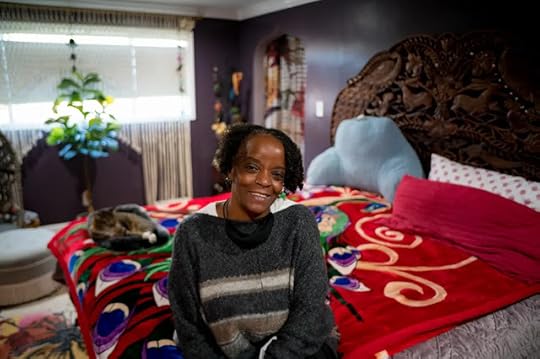
'Owning a home is a part of the American dream. It's also the key to building intergenerational wealth. But Black Americans continue to face discrimination in housing, including through higher costs.'-- Code Switch
Mark Anthony Neal's Blog
- Mark Anthony Neal's profile
- 30 followers



